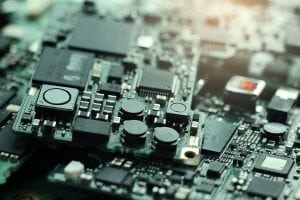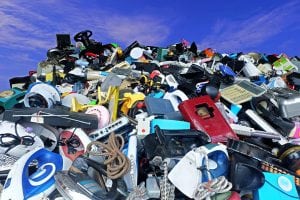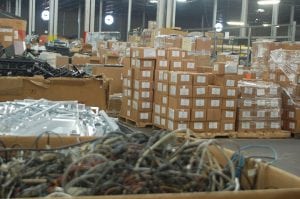 Metech International will jettison its e-scrap recycling business, citing financial losses caused by hazardous waste compliance issues and other challenges.
Metech International will jettison its e-scrap recycling business, citing financial losses caused by hazardous waste compliance issues and other challenges.

 Metech International will jettison its e-scrap recycling business, citing financial losses caused by hazardous waste compliance issues and other challenges.
Metech International will jettison its e-scrap recycling business, citing financial losses caused by hazardous waste compliance issues and other challenges.
 Even if consumers say smartphone repairability is important to them, brand popularity may be a more important factor in prolonging a device’s life, a study concluded.
Even if consumers say smartphone repairability is important to them, brand popularity may be a more important factor in prolonging a device’s life, a study concluded.
 Proposed changes to international fire regulations could impact e-scrap and ITAD companies by requiring new lithium-ion battery storage procedures.
Proposed changes to international fire regulations could impact e-scrap and ITAD companies by requiring new lithium-ion battery storage procedures.
 A former e-scrap company executive has pleaded guilty to federal fraud and tax evasion charges, admitting he marketed device destruction and recycling services but actually landfilled e-scrap and sold intact units.
A former e-scrap company executive has pleaded guilty to federal fraud and tax evasion charges, admitting he marketed device destruction and recycling services but actually landfilled e-scrap and sold intact units.
 A growing threat in the e-scrap sector received national analysis this week, when The Washington Post visited a processing facility and explored the danger of lithium-ion battery fires.
A growing threat in the e-scrap sector received national analysis this week, when The Washington Post visited a processing facility and explored the danger of lithium-ion battery fires.
 Yale University researchers estimate 3.5 million metric tons of electronics ended up in U.S. landfills in 2015, significantly higher than government estimates.
Yale University researchers estimate 3.5 million metric tons of electronics ended up in U.S. landfills in 2015, significantly higher than government estimates.

Green Tech Solution is developing a recycling facility in Blacksburg, S.C.
A Chinese investment firm is planning a $75 million recycling plant to process e-scrap, plastic and other materials.
 ECS Refining’s Silicon Valley location may be purchased by a different processor. Meanwhile, most ECS sites in other states are expected to be cleaned out within a week.
ECS Refining’s Silicon Valley location may be purchased by a different processor. Meanwhile, most ECS sites in other states are expected to be cleaned out within a week.
 Insurance providers already sell policies to protect companies that lose data to hackers. A new partnership involving e-scrap processor ERI is offering coverage for data loss from physical devices.
Insurance providers already sell policies to protect companies that lose data to hackers. A new partnership involving e-scrap processor ERI is offering coverage for data loss from physical devices.
 An upcoming federal trial will decide how much General Electric must pay for stymying competition in the repair market for its equipment. A jury previously awarded plaintiffs tens of millions of dollars.
An upcoming federal trial will decide how much General Electric must pay for stymying competition in the repair market for its equipment. A jury previously awarded plaintiffs tens of millions of dollars.
